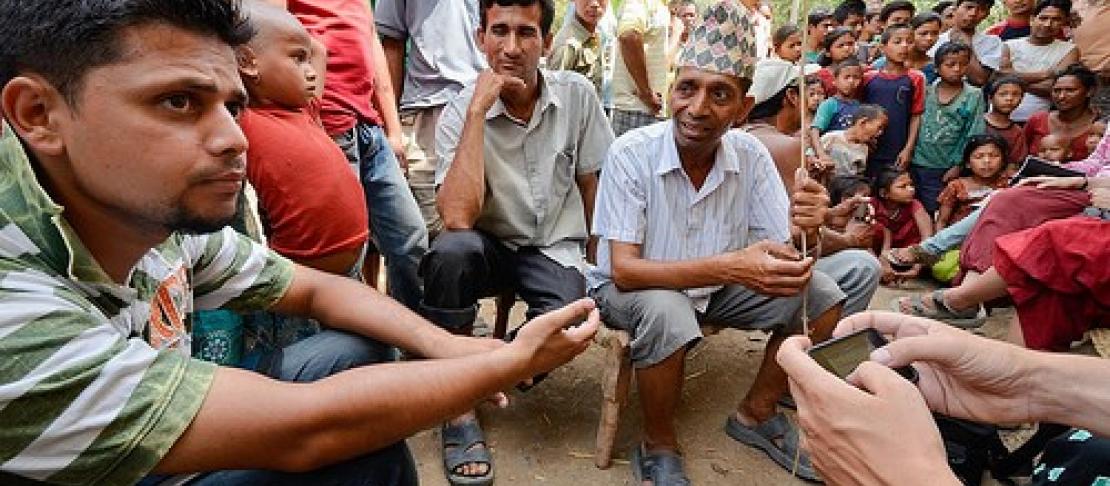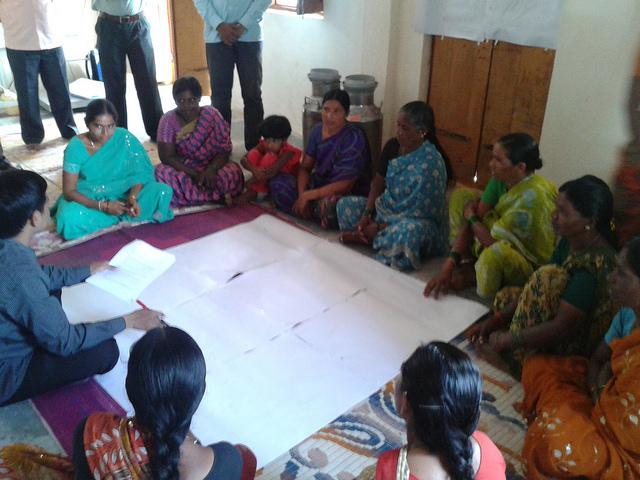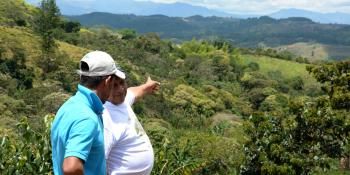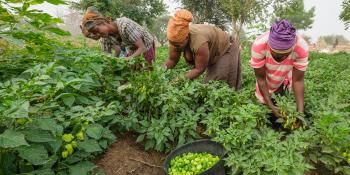Social learning for CGIAR’s new research programs

Social learning approaches help facilitate knowledge sharing, joint learning and co-creation of experiences around a shared purpose.
Social learning approaches take learning and behaviour change beyond the individual to communities, networks and systems. Through facilitated processes of working together, interactive dialogue, exchange, learning, action and reflection, shared ways of knowing emerge that lead to changes, and improvements, in practice.
This understanding of social learning is the fruit of several years’ work on ‘climate change and social learning’ (CCSL) sponsored by the CGIAR Research Program on Climate Change Agriculture and Food Security (CCAFS). Most the body of work is available publicly at http://ccsl.wikispaces.com.
It drew on a much wider social learning knowledge base, including a stocktaking study that listed nearly 130 initiatives from CGIAR centres on social learning and similar initiatives.
The participants in CCSL also developed several useful tools and resources for people wanting to apply social learning in their own work.
This work is especially relevant for CGIAR research programs (CRP) that seek to strengthen cooperation, collaboration, coordination and learning that can directly benefit from social learning. Resources available on the CCSL wiki include:
- A definition of social learning – to help avoid endless semantic discussions;
- A framework for CCSL including a toolkit – an entry point to social learning;
- A CCSL monitoring and evaluation framework – for use in developing indicators and progress towards them;
- A CCSL checklist of questions addressing some foundational aspects of social learning. They are probably the lightest and easiest way to get started with social learning;
- A series of core resources and a larger list of other resources on social learning, gleaned from the literature, for further theoretical, illustrative and didactic purposes;
- A glossary and list of acronyms to make sense of the most-used jargon of social learning.
Adapting social learning for a CGIAR research program
The start of the second phase of the CGIAR’s research programs provides an opportunity to re-look at the potential of social learning for the next phase. Recent discussions around the planned LIVESTOCK Agri-Food Systems CRP provide some early insights into what this may look like (see the proposal). The initial entry points identified are around partnerships, learning, monitoring and innovation systems – all areas where social learning offers interesting insights and practices, and also raises questions.

Facilitating a dairy value chain meeting. Photo: J. Cadilhon
These translate into several promising routes to apply social learning in the CRP:
- Embedding social learning questions into the planning, monitoring, evaluation and learning (PMEL) framework – at least five of the domains of change identified in the proposal are related to social learning to some extent.
- Using social learning tools and approaches in the design and facilitation of mechanisms for learning and collaboration across the CRP – where cross-site and cross-flagship learning is identified as a critical success factor for the program.
- Applying social learning into the processes to develop and update the CRP’s flagship strategy and implementation plans that are intended to guide research directions, provide theories of change and impact pathways, and engage partners in development. These are also envisaged for the CRP’s focus countries where rich and sustained engagement is necessary for impact on the ground.
- Incorporating social learning into the program’s cross-cutting work on capacity development and communication, engagement and knowledge management. Here, participatory learning and multi-directional facilitation approaches offer natural homes for social learning.
Read a brief that reflects on this work in relation to the new CRPs, and the LIVESTOCK CRP in particular: Le Borgne E. 2016. Applying social learning where ‘business-as-usual’ solutions no longer work for complex problems and programs. CCSL Learning Brief No. 17. Copenhagen, Denmark: CGIAR Research Program on Climate Change, Agriculture and Food Security (CCAFS).
Ewen LeBorgne is Team Leader for Knowledge, Engagement and Collaboration at the International Livestock Research Institute.



